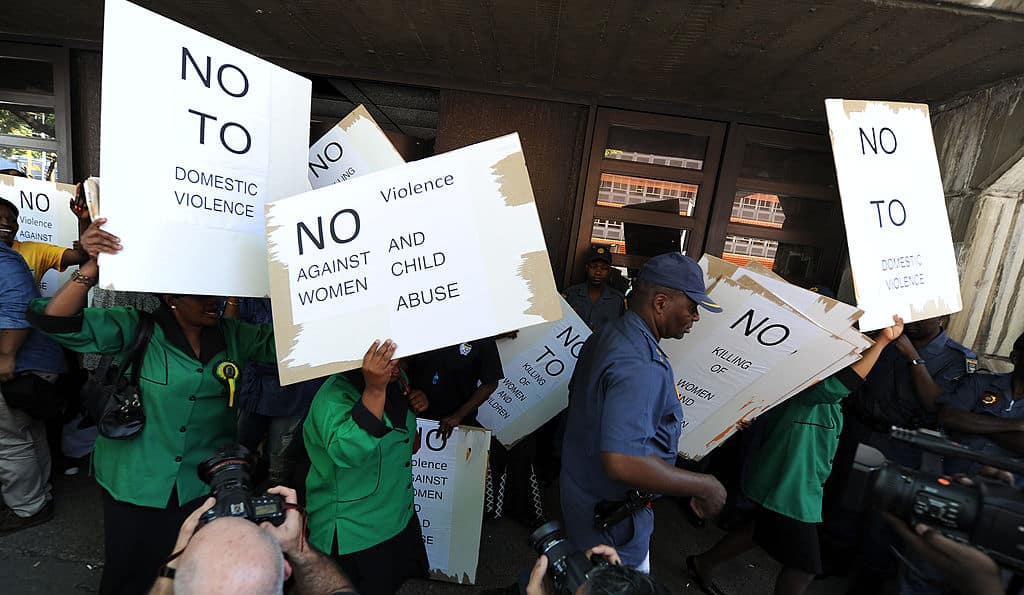More than a decade has passed since South African Paralympian, Oscar Pistorius, known as ‘blade runner’, shot his girlfriend, Reeva Steenkamp, through a locked bathroom door. Now out on parole, he is at home, as experts and social media weigh in.
Oscar Pistorius, once hailed as a trailblazing Paralympian, has been released on parole after nearly nine years behind bars in South Africa. His release, confirmed by the country’s prison authorities, marks the end of a journey that has for years gripped the attention of audiences worldwide.
“He was admitted into the system of Community Corrections and is now at home,” concluded the statement from South Africa’s Department of Correctional Services today.
Pistorius, an acclaimed sprinter and gold medal-winning athlete, was convicted of shooting his then-girlfriend Reeva Steenkamp through the bathroom door of their Pretoria home on Valentine’s Day in 2013. The subsequent case became widely publicized both locally and internationally due to both Pistorius’ and Steenkamp’s prominent social profiles, as well as the horrific end to what had appeared to be an iconic celebrity relationship.
The shooting of Steenkamp not only ended a life but also marked the start of a convoluted legal saga. Initially convicted of culpable homicide, Pistorius’ sentence was later ruled murder after a series of appeals and retrials, highlighting the complexities and nuances of the judicial process.
The relentless media scrutiny brought unprecedented attention to South African legal proceedings, influencing public opinion and raising critical questions about celebrity culture, media ethics, and the justice system’s handling of domestic violence cases.

“He has served more than 50% of his sentence. And the parole, or rather the Correctional Services Act and the regulations make provision for parole… He is being very carefully monitored, and the conditions are there… The parole board has set stringent checks on him,” comments William Booth, a defence counsel in South Africa specializing in criminal law, to FORBES AFRICA.
The conditions of Pistorius’ parole, as outlined by South African correctional services, underscore a set of requirements. His life, once marked by the freedom of the running track, is now confined to the boundaries of his uncle’s residence in the upmarket suburb of Waterkloof, Pretoria. Additionally, his rehabilitation includes therapy for anger management and programs addressing gender-based violence, a nod to the underlying issues his case has brought to the fore as well as stern adherences to a daily routine and a ban on alcohol consumption.
The most significant condition to his release, which is quite uncommon to parole cases, is his strict adherence to a media blackout.
“I think the reason for that is because the case has been dealt with worldwide in the media on all platforms,” Booth explains. “They feel that he should not give interviews, be paid for those, write articles or have articles written or even, let’s say write a book and get paid for that. So I think that is the feeling in this instance. And in many cases, when people are released on parole, there’s never any fear of the person going to speak to the media, because it’s not a case that the public have any particular interest in. But here, certainly the world and the public internationally, and, of course, nationally, have a very specific interest in this matter.”

Even with these conditions in place, activists hold strong views about granting parole to a person convicted of murder in South Africa, a country with one of the highest femicide rates in the world.

“Thirteen years and five months was a very lenient sentence in the first place, but that he got out after serving only [over] eight years in prison just reflects the legal system’s inability to address femicide as a pandemic,” says Sabrina Walter, Chairperson of Women For Change, a non-profit organization advocating against Gender Based Violence and Femicide in South Africa.
“I still maintain that Oscar Pistorius should have served the full sentence for the brutal murder of Reeva. Given the severity of the crime, I feel that justice has not been adequately served. My thoughts are with June today and everyone who dearly loved Reeva.”
The most resonant voice in the aftermath of Pistorius’ release is that of June, mother of the late Steenkamp, issued in a statement early this morning. While acknowledging the inevitability of Pistorius’ parole, she stated that she and her “dear late husband Barry” have never been able to come to terms with Reeva’s death, or the way she died.
“Has there been justice for Reeva? Has Oscar served enough time?” Steenkamp said in her statement on Friday. “There can never be justice if your loved one is never coming back, and no amount of time served will bring Reeva back. We, who remain behind, are the ones serving a life sentence. With the release of Oscar Pistorius on parole, my only desire is that I will be allowed to live my last years in peace with my focus remaining on the Reeva Rebecca Steenkamp Foundation, to continue Reeva’s legacy.”

The Reeva Rebecca Steenkamp Foundation, established in her honor, continues to address issues of domestic violence and support women in need, reflecting her commitment to social change.
As Pistorius begins his life under the conditions of parole, the case leaves a lasting imprint on public discourse surrounding the criminal justice system, the treatment of high-profile figures within it, and the ongoing challenges in addressing domestic violence.
